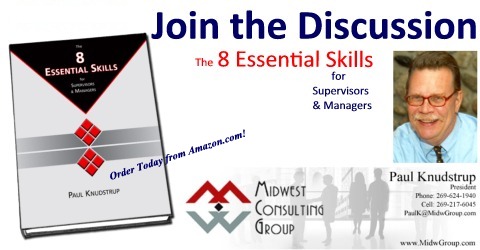If there is one thing General Dwight Eisenhower learned during his military career it was this simple fact: the only person responsible for getting the job done, no matter what that job may be, is you!
That’s why “Managing Yourself” is Skill 1 in The 8 Essential Skills for Supervisors & Managers. If you can’t manage yourself – your workload, your projects, your tasks . . . then how can you be successful at managing others?
Long before he become Supreme Commander Allied Forces Europe prior to D-Day 1944 he began to use what eventually became called “The Eisenhower Box.” When Stephen Covey modified it in “The Seven Habits of Highly Effective People” he called it the “Four Quadrants”
Whatever you choose to call it, the Eisenhower Box has two Axis: Urgent and Important. Using this matrix you can classify nearly everything you have on your plate as falling in one of four categories:
- Urgent & Important – Things you must do – critical issues that command your attention
- Urgent & Not Important – Things you can delegate to someone else
- Important & Not Urgent – Thing you must decide about – who & when?
- Not Important & Not Urgent – Things you can delete; not do; forget about
Eisenhower used this matrix every day, listing the issues he had in front of him on this form. Then he used this approach to help him manage himself every day, whether he was General Eisenhower or President Eisenhower.
Give this simple yet powerful tool a test drive for a couple of weeks. Where would you place all the projects and tasks on our plate right now? What are you committed to accomplish in the next week? What could you delegate to someone else on your team who is read for a new challenge? What could just be dumped in the circular file as not worth the effort? After all, it’s up to you to determine what you will do today, tomorrow, and beyond.
Paul

